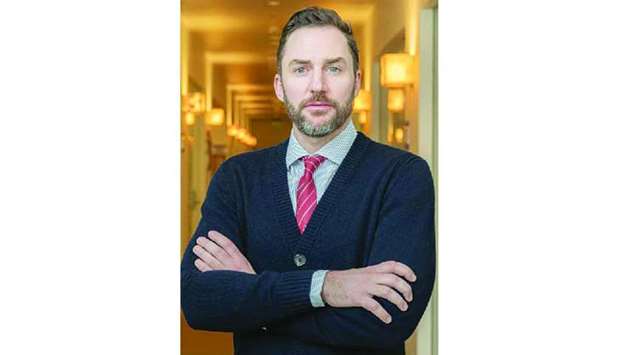The surprising story of the modern passport, the world’s most recognisable document, is the focus of a Faculty Fellow talk by Dr Edward Kolla, associate professor of history at QF partner Georgetown University in Qatar (GU-Q) on March 29 at 6pm.
'The Amazingly Idiosyncratic History of Passports' webinar is being organised by GU-Q’s Centre for International and Regional Studies (CIRS), which awarded their annual GU-Q fellowship to Dr Kolla in support of his research for an upcoming book.
Although travel documentation has existed since ancient times, the current passport system emerged “temporarily” during World War I and remains ad hoc despite international organisation efforts to standardise it.
“People take it for granted that they require a passport to travel, but this indispensable and powerful document has no foundation in international law, and varies from country to country,” explained Dr Kolla, noting that current efforts to standardise a Covid-19 vaccine passport are facing obstacles as a result of the passport’s informal framework.
An avid traveller himself, Dr Kolla recalls a moment he was standing in line for a passport check when the question of the document’s history dawned on him. “As someone who studies diplomatic and legal history, I was intrigued by the question, and started digging. What I discovered is that the passport is woefully understudied, perhaps because it’s a very complicated story. That's the story I'm trying to tell with this book.”
His talk will share insights gleaned from his research conducted over the last five years through visits to archives in France, the UK, Switzerland, and the US, and conducted online when lockdown measures rendered his own passport useless for travel. Two GU-Q students assisted his research by providing non-Western language skills to make his research more global.
One takeaway of his research, said Dr Kolla, is the disparity in who has access to passport privilege, and who doesn’t. “The Covid-19 lockdowns have really reminded people of the freedom a passport represents, but for others, it’s still a symbol of difficulty. And this goes back to the point of international law. In theory, all people have a right to freedom of movement. But in practice, that doesn't exist. That mobility is more often based on an unfair and hierarchical system, a reality most of us take for granted.”
Although travel documentation has existed since ancient times, the current passport system emerged “temporarily” during World War I and remains ad hoc despite international organisation efforts to standardise it.
“People take it for granted that they require a passport to travel, but this indispensable and powerful document has no foundation in international law, and varies from country to country,” explained Dr Kolla, noting that current efforts to standardise a Covid-19 vaccine passport are facing obstacles as a result of the passport’s informal framework.
An avid traveller himself, Dr Kolla recalls a moment he was standing in line for a passport check when the question of the document’s history dawned on him. “As someone who studies diplomatic and legal history, I was intrigued by the question, and started digging. What I discovered is that the passport is woefully understudied, perhaps because it’s a very complicated story. That's the story I'm trying to tell with this book.”
His talk will share insights gleaned from his research conducted over the last five years through visits to archives in France, the UK, Switzerland, and the US, and conducted online when lockdown measures rendered his own passport useless for travel. Two GU-Q students assisted his research by providing non-Western language skills to make his research more global.
One takeaway of his research, said Dr Kolla, is the disparity in who has access to passport privilege, and who doesn’t. “The Covid-19 lockdowns have really reminded people of the freedom a passport represents, but for others, it’s still a symbol of difficulty. And this goes back to the point of international law. In theory, all people have a right to freedom of movement. But in practice, that doesn't exist. That mobility is more often based on an unfair and hierarchical system, a reality most of us take for granted.”

